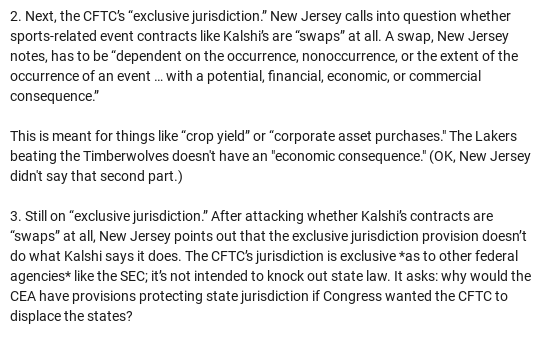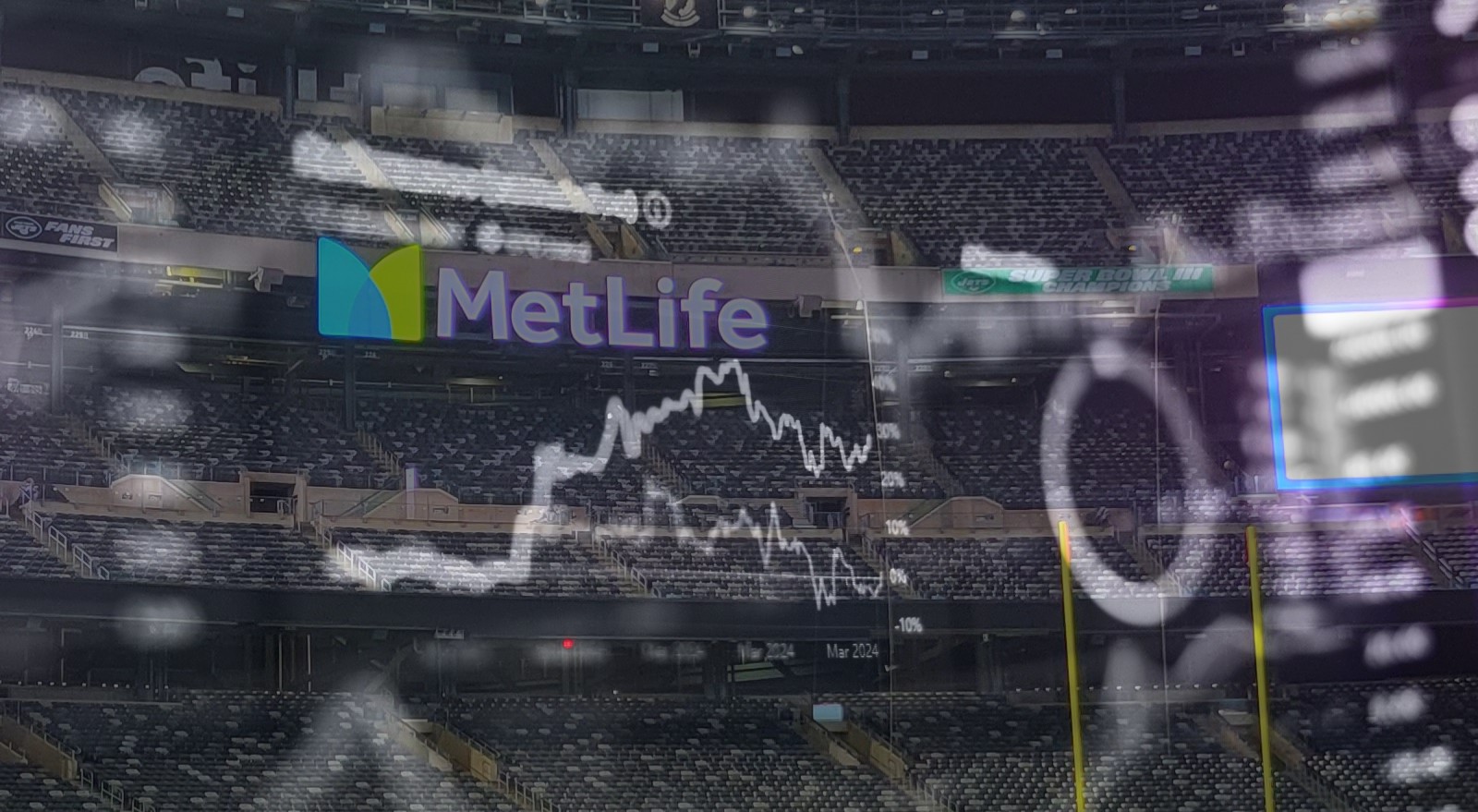Kalshi’s attempt to offer sports betting markets in states where it’s not regulated as a gambling operation represents an “end run” to the law, according to documents filed by attorneys for the state of New Jersey on April 18.
Andrew Kim, a partner at the Goodwin law firm who specializes in gambling, wrote on LinkedIn that “Kalshi may regret bringing the fight to New Jersey.” Kalshi requested an injunction stopping a state-issued cease-and-desist order, but the state is fighting back.
The New Jersey Division of Gaming Enforcement preceded states such as Nevada and Ohio in refuting CEO Tarek Mansour‘s claim that Kalshi is immune from state regulations because it’s regulated by the Commodity Futures Trading Commission under the Commodity Exchange Act (CFTC).
In his latest Linkedin analysis on the national sporting event contract debate, Kim detailed how New Jersey is attacking that premise.
Crucial among them is New Jersey’s assertion that CFTC isn’t empowered the way Mansour contends.
From Andrew Kim’s analysis:

A swap is a trade in which two parties exchange an asset to lock in predictability or take on risk for greater profit.
Prediction market vs. traditional sports betting:
Sports bettors take positions against the “house” by wagering money using the odds established by bookmakers, who then adjust the odds as money flows to each side of the proposition. If one side is bet heavily, those odds shorten.
In prediction markets, players purchase shares in the outcomes of events, similar to buying stocks. The price of the shares fluctuate with the amount of action on either side. The price of an outcome will increase when more speculators buy it.
Kalshi double-dipped on New Jersey ire
Kalshi began offering markets on the NCAA Men’s Basketball Tournament Jan. 24, including some games played in Newark. Licensed sportsbooks cannot offer betting on college sports per New Jersey law.
Mansour said as recently as two weeks ago at a venture capital summit that “state law really doesn’t apply to us.”
The state of New Jersey begged to differ in its filing, arguing that its right to determine and enforce its traditional state “police powers,” and corresponding state laws, will be harmed if Kalshi won an injunction and was allowed to proceed.
The state went on to assert that Kalshi would suffer “no irreparable” harm — albeit some monetary pain — if its injunction request is denied and noted that Kalshi is welcome to apply for a sports betting license:
While Kalshi bemoans its inability to accept sports wagers in New Jersey if a preliminary injunction is denied, this harm is entirely avoidable: Kalshi can accept nearly all sports wagers in New Jersey if it simply obtains a license and complies with the Sports Wagering Act.
New Jersey response points of emphasis
- Kalshi is not exempt from New Jersey gambling laws because it offers a different type of gambling: “[Kalshi] thinks it is exempt from those laws simply because it offers sports wagers in a new format (called event contracts) on a market designated by the Commodity Futures Trading Commission (CFTC). Kalshi is wrong. There is no doubt that if the Commodity Exchange Act (CEA) applies to Kalshi’s sports wagers, Kalshi must comply with the CEA in order to list them on a CFTC-designated market. But it cannot do so in violation of state law.
“… Kalshi cannot end-run [state law] just by offering sports wagers in a different format.”
- The CEA acknowledges its acquiescence to state laws and that “Congress specifically intended to prohibit event contracts that impermissibly involve, among other things, “gaming” or “activity that is unlawful under any Federal or State law.”
- Kalshi can remain under CFTC oversight for its previous slate of futures trading while complying with New Jersey law:
“… the Sports Wagering Act, even as applied to Kalshi’s event contracts, does not regulate (and so does not undermine the CFTC’s regulation of) the futures market. … Rather, the Act’s imposition of licensure and related requirements on an entity in order to offer sports wagers in New Jersey—including sports wagers in the form of event contracts—does not impede the CFTC’s ability to regulate that event contract. An entity like Kalshi can obtain a license from New Jersey to offer sports wagers in the State and remain under the oversight of the CFTC as a designated contract market.”
Kalshi’s reply brief in response to New Jersey’s opposition brief is due on April 23.






